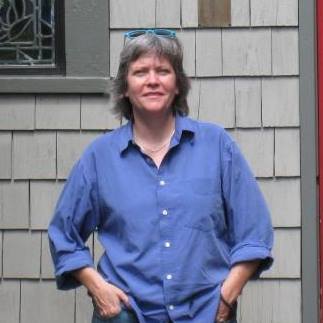They say that cleanliness is next to godliness, and as I crawl the perimeters of every room in my house – pushing a bucket of soap suds and scrubbing baseboards – I hope somehow they’re right. Actually, there on my knees behind the sofa, I feel my hope strengthening somewhat, transforming into something that’s a bit more like a hunch
It started on the morning after I had cleaned my desk.
I was eight months into my sabbatical, my time to write and think and pray and maybe figure out a better way to pay the bills, love my partner, and feel like myself again. I had told myself that it was not enough to slide my writing into my spare time – to come to it after all my obligations had been met. I needed more, I thought.
But I could not have been more wrong.
Eight months free of the responsibility to bring a paycheck in, and I still wasn’t writing much at all. I held myself to prayer, and made myself more available to my aging mother. But the writing still sat, like a mirage, on the ever-receding horizon.
Then one morning, with my coffee cup, I shuffled in to say my prayers, there at the window of my office. I was shocked to stillness by the clear and empty desk before me – the night before I’d sorted, filed, put away the last vestiges of projects that had bled into the year. The computer monitor was dark and quiet in one corner, the keyboard tucked against it with the mouse. There was a coaster for my coffee cup, and pens and pencils in the jar up on the windowsill. There was no clutter, little decoration; five cubic feet of wood grain stretched there, shining in the morning light.
And I remembered what “spare time” could be.
I had been thinking of spare time as extra – an hour or two stashed in a trunk, to be pulled out and put to use when “regular time” deflated; twenty minutes crumpled in a drawer, there with the batteries. There’d never be enough of that, because it wasn’t what I needed.
I needed time that was spare in the way my desk was spare that morning, in the way a monk’s cell can be spare: uncluttered, unadorned, simple, empty, plain. To write, I understood all in a flash that morning, I needed spare, plain time – time to think just one thing at a time, time free of complications and mixed motives, unshadowed by a sense of other obligations or the suspicion that really, wasn’t I just making all this creative hooey-hooey up? Or wasn’t it really someone else’s fault that I had not yet been discovered, that the New York agents hadn’t yet come calling, asking for the riveting, creative, revolutionary bits of prose that, well, hadn’t yet been written down.
When I hear the psalmist’s request for a “clean heart,” I hear a striving for simplicity and plainness. My Bible says this is a psalm of David, written after he has gone in to Bathsheba, after he has been confronted, after he begins to regret.
I imagine the enormity of all that he’s done wrong hitting him like the a sandstorm’s wind: scouring away the layer of rationalizations, the words he used to tell himself that he deserved another man’s wife. I imagine the weight of his crime settling upon him like a stone – and a relief.
He strives to repent enough to save his son, but breaks his fast when he is told the son died, anyway. He goes to his new wife, in mourning, and Solomon’s conceived. And isn’t wisdom often born of deep regret?
To look back in real honesty upon one’s actions and their motivations, to face up to the consequence, to heal and move on – these are tasks that take a certain steadfastness of spirit, these are tasks you take on, just one at a time. And there are others: listening for that certain still, small voice, for inspiration; gathering the nerve to speak aloud your hopes and dreams; developing an ear for when ideas turn to scheming; finding the humility to turn yourself right back.
This sabbatical of mine, it’s been filled with lots of cleaning. Carpentry, as well. And lots of cooking. These are tasks that open to spare time, even as they demand a number of my hours. They require just enough attention, they are just enough straightforward, that begin to feel a clearing out, a slow untangling, a cleansing of my heart.

Virginia native Melissa Capers has taught writing at the University of Richmond, Virginia Commonwealth University, Austin Community College, Austin Writers League, and The Writer’s Center in Bethesda. She earned a bachelors in English Literature from William & Mary and an MFA in Fiction and an MA in Composition and Rhetoric from Virginia Commonwealth University.
